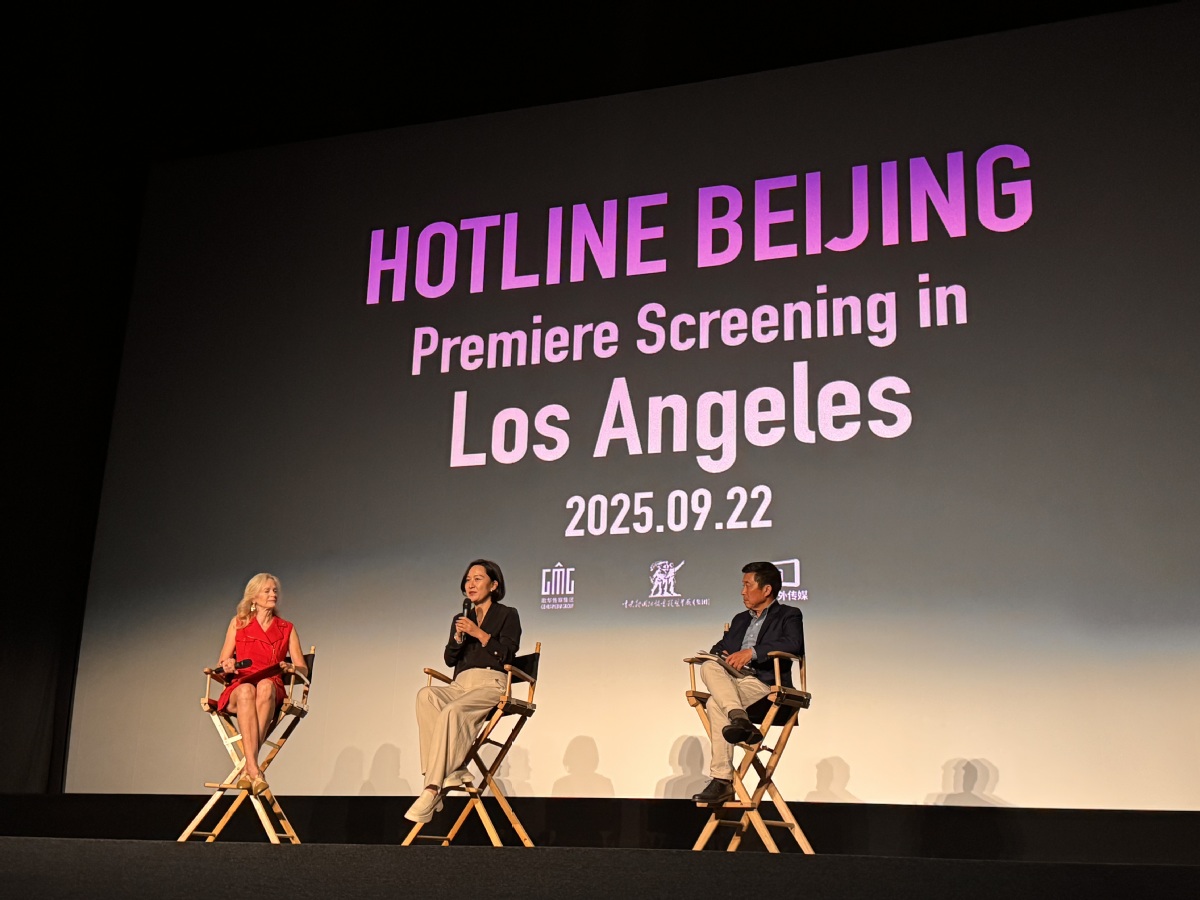Hotline Beijing premieres in LA celebrating community


The documentary Hotline Beijing premiered in Los Angeles on Monday as part of its international promotional and exchange event, with support from Golden Screen Awards, giving American audiences a closer look at how China's capital addresses citizens' needs through its innovative "12345" citizen service hotline.
Produced by the China Central Newsreel and Documentary Film Studio under China Media Group, and co-produced by Beijing Gehua Media Group and Beijing Gehua Mobile Television Company, the documentary uses the hotline as a narrative thread to tell real stories about community issues and the people working behind the scenes to resolve them.
"Our film is centered on the innovative practice of Beijing's 'Responding to Complaints Immediately' reform," chief director Xu Jieqin told China Daily. "Through real-life footage and the voices of ordinary people, we wanted to show how this hotline reflects the common governance challenges faced by megacities around the world."
"What we aimed for," Xu continued, "was to create a vivid scroll of daily life, stories that are close to people's hearts, and to show how a single hotline in Beijing has helped catalyze reform in the governance of a city of more than 20 million residents."
The documentary collects seven stories, ranging from neighborhood parking management and elevator installation in old residential buildings to the personal growth of hotline operators, emergency response and even visits by international journalists. It not only presents specific community stories, but also showcases Beijing's broader explorations in agile, resilient, proactive, law-based, diversified and digital governance.
Kim Holland, a US documentary filmmaker who hosted the premiere, said the film offers valuable lessons for American audiences.
"The citizen service hotline gives all Beijing residents a place to call whenever they have a complaint so they can register it, and the team will work on solving it. It's good for Americans to see that China has instituted such a system for urban problems," Holland told China Daily.
Chinese deputy consul general Li Zhiqiang said films are a bridge between US and China.
"Screenings of Chinese and American films can transcend differences in culture, religion and ideology, and effectively bring our people closer together," he said. "There is solid potential for China-US film exchanges. Our industries are highly complementary and mutually beneficial for the two largest film markets."
For Rance Pow, CEO of Artisan Gateway based in LA and who lived in China for a decade, the film's appeal lies in shared experiences.
"Hotline Beijing captures humanity, the struggles and routines of daily life in a way that is deeply relatable, whether it's parking spaces, medical care or potholes," he told China Daily. "It shows a society that cares for itself, and the universal desire for prosperous, harmonious communities. The film also humanizes the '12345' hotline staff as citizens who care for their neighborhoods and the people around them."
Actor and producer Pete Allman, who has visited China several times, praised the film's realism.
"I was very impressed with the cleanliness of the streets, the lack of homelessness and the engineering advances I saw in China. They've come a long way, even more advanced than the US in some areas," Allman told China Daily. "I'm a peace advocate, I think we need more films that bring people together, because that's how we can promote peace not only in LA, but in the world."
The film has already earned more than $11 million at the Chinese box office, placing it among the top three documentaries in China.
"Chinese audiences are increasingly interested in reality-based documentaries that reflect changes in society," Xu added.
































